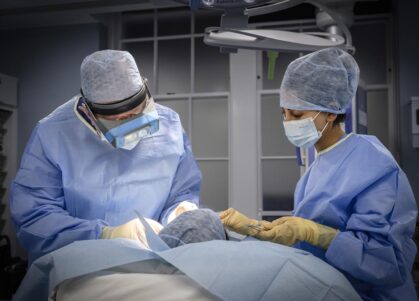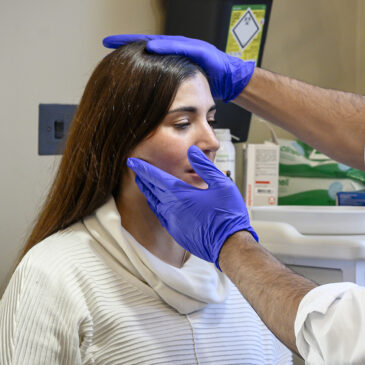Other Jaw Conditions
Jaw Fracture
A jaw fracture is a break in the jawbone, usually caused by trauma or injury. It can affect your ability to bite, speak, or move your jaw normally, and may require surgery to repair and realign the bone properly.
Dislocated Jaw
A dislocated jaw happens when the lower jaw moves out of its normal position, often due to wide yawning, injury, or TMJ issues. It can cause pain, difficulty closing your mouth, or trouble speaking. Medical attention is needed to guide the jaw back into place safely.
Osteonecrosis
Osteonecrosis is a fairly rare, although damaging condition. The bone around the jaw joint or within parts of the jaw itself degenerates due to lack of blood flow. This impacts the natural renewal process. Alongside pain or numbness your jaw can fail to heal, after trauma or dental work.
Jaw Cancer
Jaw cancer is a serious condition that affects the bones or soft tissues of the jaw. It can cause symptoms like swelling, pain, loose teeth, or difficulty chewing. Early detection is important, as treatment may include surgery, radiation, or other therapies to remove the cancer and restore function.
A Rounded View on Treatment
The likelihood is that one key condition lies at the root of your jaw symptoms. However our specialist consultants will never make that assumption and will look to carry out a thorough assessment to be sure of your problem and the best way to treat it.
Jaw issues are well understood by our specialists and a range of treatments are available. These could include direct injections, or oral medication, to ease discomfort and at times, offer a long-term solution.
Treatment may also involve surgical procedures from removing fluid, or foreign matter from a joint, to operating on bones, or other tissues. Jaw joints can be completely replaced with a man made alternative, facial trauma can be restored.
Major surgery for most jaw disorders is however quite rare. We take a careful approach, to achieve maximum improvement with minimal intervention.
Our consultants and support team are there to find the best way to restore your normal life. To arrange a visit to a maxillofacial consultant, or simply for advice, you are welcome to get in touch.





